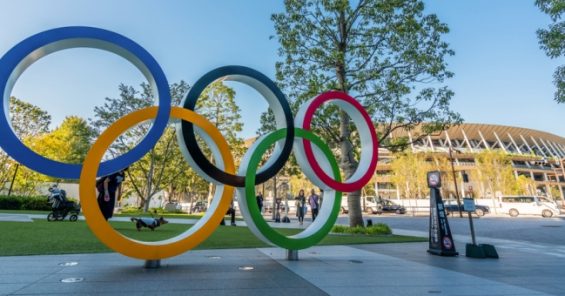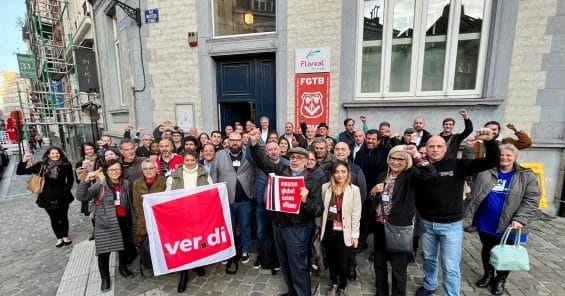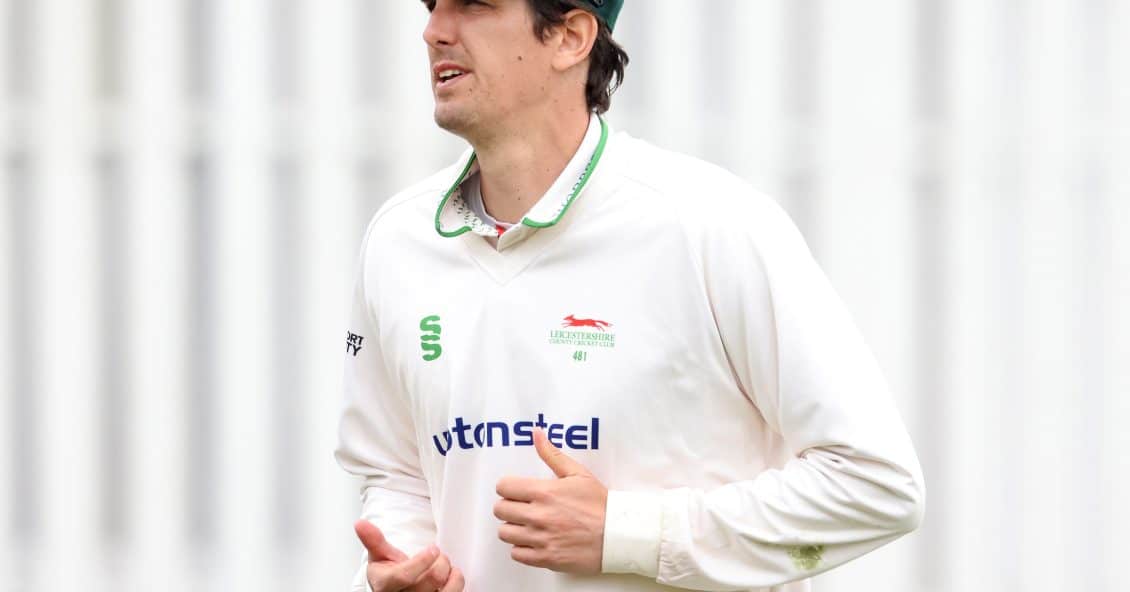Comprehensive COVID-19 protections – not rudimentary statements – are essential if a safe and successful Olympiad is to be possible
The World Players Association today said that comprehensive and fully funded COVID-19 protections – not rudimentary statements – are essential if public and athlete health are to be adequately protected at the Tokyo Olympics scheduled to open on July 23.
World Players, which brings together 85,000 players across professional sport through more than 100 player associations in over 60 countries, also set out key criteria that the International Olympic Committee (IOC) must address if a safe and successful Olympic Games is to be possible. The criteria reflect the collective experience and detailed negotiations that enabled many professional sports to return to play within weeks of the pandemic breaking.
World Players’ statement comes ahead of the IOC’s 9 February launch of a so-called “Athlete Playbook” and follows documents released by the IOC earlier this week aimed at International Federations (IFs), the media, and broadcasters as well as an earlier IOC guidance in December 2020. The IOC has been steadfast in its determination that it is not if the Games will be staged, but how.
World Players’ affiliates represent athletes who will be competing at the Olympics including in the major professional team sports of football, basketball and rugby.
World Players Association, Executive Director, Brendan Schwab said:
“World Players shares with the IOC the common goal of a safe, fair and successful Olympics that does not undermine the global health effort. The Japanese people and the athletes of the world deserve nothing less. However, all need to know that nothing is being left to chance or circumstance and that no expense is being spared to achieve this.
“The Tokyo Olympics are scheduled to be held at a critical juncture in the international community’s campaign to overcome the COVID-19 pandemic. An alarming rise in the rates of infection and fatalities, the emergence of new and even more infectious strains of the virus and the global roll out of the vaccine all need to be addressed with public health – not sport – being the number one consideration.
“Japan is presently in a state of emergency and has almost 50,000 active cases compared to approximately 850 at the time the Games were postponed in March 2020. Globally, there are now almost 26 million active cases compared with around 388,500 when the Games were postponed.
“IOC President Thomas Bach has said that three things: (1) the development of the vaccine; (2) improved testing; and (3) the return to play of many professional sports have given the IOC the confidence that the Tokyo Olympics can be safely held. However, the IOC’s own guidance fails to learn from the experiences of professional sport by providing for inadequate protocols and rates of testing. In addition, athletes should not be prioritized in the vaccine roll out above the needs of vulnerable people and essential workers.”
Schwab also said:
“Player associations have worked tirelessly to put public and player health first since the start of the pandemic. This has included consultation with experts in the fields of public health, infectious diseases, epidemiology, occupational health and safety, as well as athlete development, mental health and wellbeing. This has enabled the negotiation of comprehensive and sophisticated return to play protocols (RTP Protocols) to protect players, including those from high-risk groups in high-risk environments, from the harmful impacts of COVID-19.
“While the experience of professional team sports can be a valuable precedent for the IOC, it can only be if the keys of its success are fully embraced by the IOC and scaled to the level of the Games. That is, detailed protocols matched by rigorous implementation; the investment of significant financial resources (which in some cases have amounted to hundreds of millions of dollars); and, above all, negotiation and ongoing communication with athletes and their representatives about the measures in place, including how, when and why they may need to be changed.
“Where these fundamentals have not been followed, there have been too many sporting events which have exposed the public and athletes to unacceptable and avoidable risks. To do so on the occasion of the Olympic Games would threaten sport’s social licence.
“World Players and our affiliates are committed to ensuring this does not occur by putting public and athlete health first. We continue to remain open to discussions with the IOC to share our knowledge and expertise to build trust in the decision-making process. At the same time, player associations will continue to take the necessary steps to ensure the careers and livelihoods of their members are properly protected.”
Minimum Requirements for Tokyo
There are several minimum commitments required of the IOC to ensure it can fulfil its duty and responsibility to deliver a safe and fair Olympics in Tokyo:
RTP Protocols
RTP Protocols, which often run for hundreds of pages, contain detailed measures designed to protect athletes, and all those they may come into contact with, from the risks associated with COVID-19. They also address fundamental questions such as:
- Whether the players and essential staff, including coaches and medical personnel, should be based in “quarantine hubs” to create a pristine environment and prevent the transfer of infection among competitors
- Testing and contact tracing measures
- Whether traditional competition formats need to be altered, such as competition and game length
- What happens in the event of a postponement, as a positive COVID-19 test will normally require team-mates and recent competitors to isolate. “Flexible scheduling” has been an essential feature of many sports.
Securing safe international travel arrangements and protections to and from Japan
International travel has been severely disrupted due to the pandemic and international competition was the last part of the professional sport industry to resume following the global pause. The experience of doing so has seen many athletes test positive to COVID-19 and produced subsequent disruption with other competitions. Given the wider risks it poses to the overall public health situation, many countries are now increasingly imposing mandatory quarantine requirements upon arrival. The IOC must work to secure and resource safe international travel arrangements with all participating National Olympic Committees (NOCs) and their governments to and from Japan – this will include an assessment of mandatory quarantine, where, for how long and ensuring any costs arising are covered. On the available knowledge, it is premature to rule out a requirement that all athletes do not need to quarantine on arrival in Tokyo, which is the IOC’s present guidance.
Providing a rigorous and effective testing regime
A comprehensive testing regime must be guaranteed for the approximately 11,000 athletes who are due to compete, along with all athlete village and Games support staff who athletes may come into contact with. Given the state of the pandemic in many countries, some professional team sports are now testing several times a day. Such regularity must be resourced and funded at the Olympics with test results being available at a rate that can inform urgent preventative and remedial action.
Guaranteeing ‘COVID-19 safe’ training, competition and accommodation environments in Japan
In addition to basic public health advice and any RTP Protocols, there should, at a minimum, be no travel on public transport or in any circumstances likely to expose athletes to the virus; all athletes must be provided individual rooms for accommodation; clear limits and procedures established to manage capacity within the athlete’s village consistent with required social distancing; and, easy access to effective personal protective equipment.
Ensuring access required to all necessary treatment and care options
This should include dedicated facilities and procedures for isolation, treatment and contact tracing in the event of positive COVID-19 tests, along with medical evacuation to country of origin in the event of emergencies. At the same time, access to the full range of treatment and rehabilitation options ordinarily required for non-COVID-19 related injuries and illnesses must not be compromised. This should also include mental health support for competing athletes given the uniquely challenging circumstances connected with this Olympics.
A fair and safe competition for all athletes who have earned their place
It is necessary to ensure that all athletes who are eligible to compete can compete; equitably resolving issues in connection with disrupted qualification cycles; ensuring athletes can participate in all required aspects of their regular training programs before and on arrival in Japan; as well as ensuring athletes are given time to attain competition fitness in accordance with recognized best practices.
Ensuring athletes do not assume the risks arising from the Games
Athletes must not be required to assume the risks arising from their participation at the Olympics through the signing of liability waivers or other means. While economic and commercial considerations are a material factor in the decision to continue to hold the Games despite the clear health risks, athletes are not paid to compete and have limits imposed by the IOC in relation to their earning potential. It would be plainly unjust to force athletes to assume the economic and health risks arising from the Games at any time, let alone in the midst of the global health crisis.
Despite the IOC documents aimed at IFs, the media and broadcasters released this week being light on detail, they still provide that “despite all care taken, risks and impacts may not be fully eliminated, and therefore you agree to attend the Olympic and Paralympic Games at your own risks.”
Given the essential role of the athlete in generating the wealth of the Olympic Movement, this condition must not extend to the athletes.
Responsibilities of the IOC, IFs, NOCs and Tokyo 2020
All athletes will be responsible for complying with any COVID-19 protocols and measures in Tokyo. However, the IOC, the IFs, the NOCs and the organisers have a collective and individual duty and responsibility to protect public and athlete health. The IFs “playbook” published this week by the IOC does not address the particular responsibilities of IFs as the governing bodies of sports participating at the Games. It is instead a generic document that refers to participant behaviour in a similar way as is seen in most workplaces and public areas around the world.
Plan-B
The IOC must at all times acknowledge that the public health crisis is at a critical juncture. The global recovery that all of us were hopeful of has yet to materialize. The IOC must have transparent scenario planning if the Olympic Games have to be postponed again, or the identification of other options that would allow them to be hosted safely, including through scheduling innovations across longer periods which would mitigate the risks involved of hosting such a large scale event in a short period of time.
The World Players Association, part of UNI Global Union, is the exclusive global voice of organized players and athletes across professional sport. It brings together 85,000 players through more than 100 player associations in over 60 countries. Its role is to ensure that the voice of organized players is heard at the highest levels in the decision-making of international sport.


